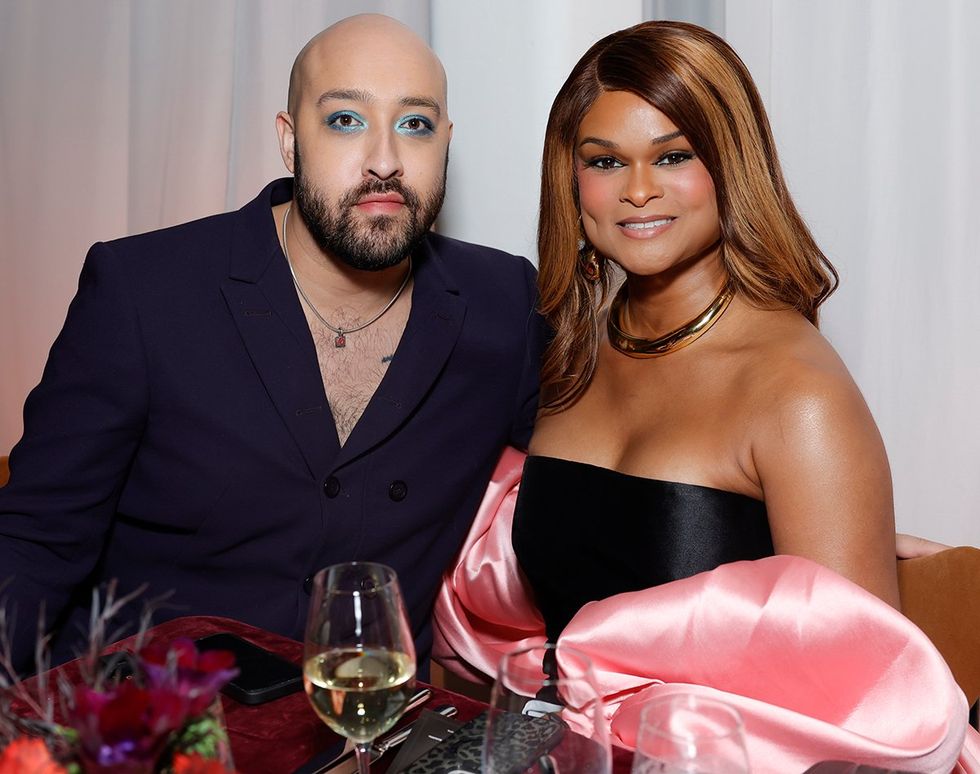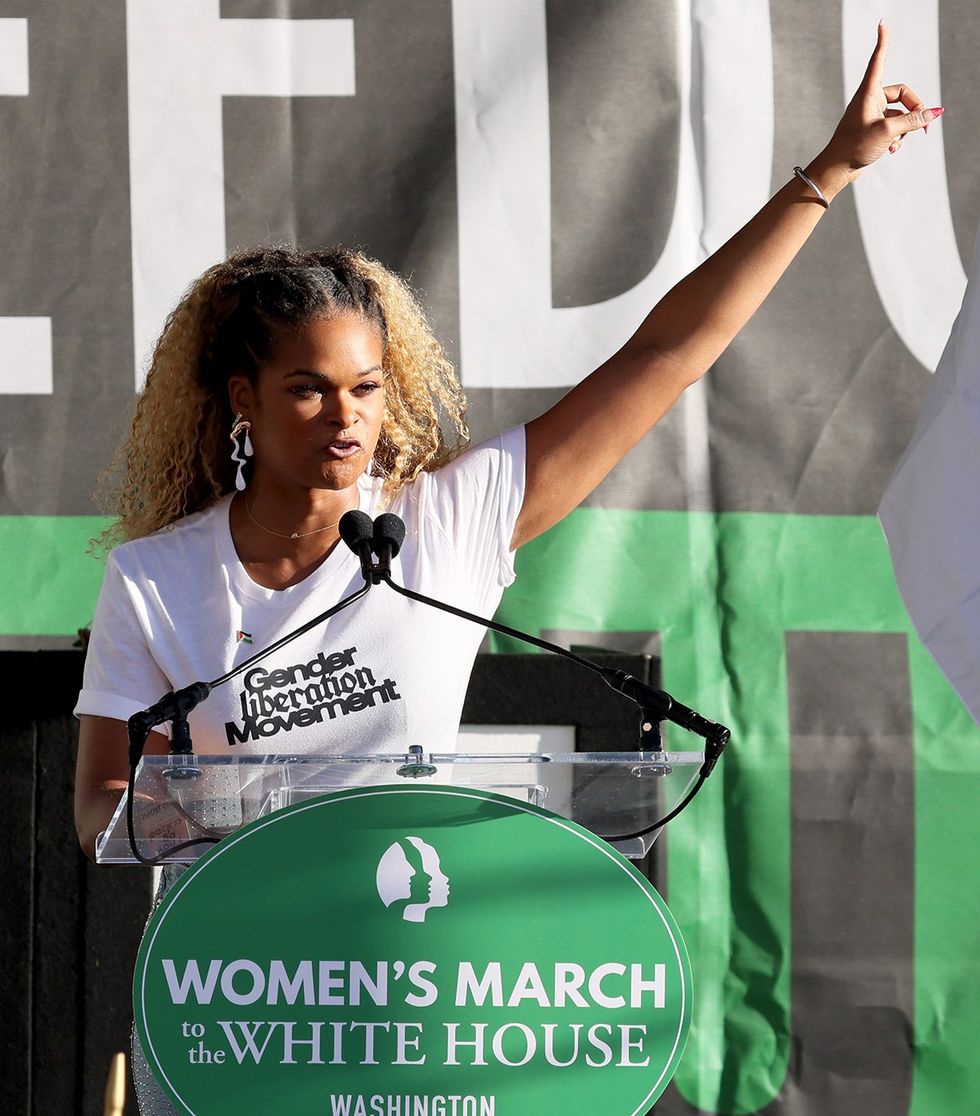Raquel Willis' most recent accolade doesn't compare to the "tremendously fulfilling" work she does day after day.
The transgender activist and co-founder of the Gender Liberation Movement (GLM) has been named one of TIME's Women of the Year, being honored as one of the "extraordinary leaders who are working toward a better, more equal world."
"This honor was validating for my career and for my passion, but not for my womanhood," Willis tells The Advocate. "In this time, it's especially important for trans people to make it clear that external validation pales in comparison to internal validation when it comes to our identities."
 Eliel Cruz and Raquel Willis from Gender Liberation Movement attend the TIME Women of the Year Gala at The West Hollywood EDITION on February 25, 2025 in West Hollywood, California. Stefanie Keenan/Getty Images for TIME
Eliel Cruz and Raquel Willis from Gender Liberation Movement attend the TIME Women of the Year Gala at The West Hollywood EDITION on February 25, 2025 in West Hollywood, California. Stefanie Keenan/Getty Images for TIME
Willis became involved in advocacy work in 2014 after being moved by the death of Leelah Alcorn, a 17-year-old trans girl who died by suicide. This was nearly a decade before state legislatures would begin pushing anti-LGBTQ+ laws at an unprecedented pace, resulting in over 1,000 bills that target the community being proposed across the U.S. since 2023.
"I hate that in some ways, things feel more restrictive and regressive than they did even then," Willis says, adding, "That's why this honor is a bit bittersweet for me, because there's still so much left to do."
GLM is a grassroots and volunteer-run national collective seeking to unite LGBTQ+ people and women with their fellow Americans in the fight for bodily autonomy. The group focuses on direct action through cultural events, media advocacy, and policy work, including last year's Gender Liberation March as well as the protest at the U.S. Capitol in January over Republicans' anti-trans bathroom ban that resulted in the arrests of over a dozen activists, including Willis.
Willis says that "my work focuses on bodily autonomy and self determination for all," which goes beyond abortion and gender-affirming care access.
"Beyond the attacks on trans people from all corners of society, I see cis people holding insecurities and fears about who they are in this world," Willis explains. "I think there's a crisis of identity amongst cis women who are trying to figure out how to tap into their feminine energy and cis men who feel that they aren't masculine enough in a society that isn't delivering on the entitlement that they maybe grew up assuming they benefit from. Those are gender issues."
 Raquel Willis is seen speaking onstage during the "We Won't Go Back" Women's March To The White House on November 02, 2024 in Washington, DC.Jemal Countess/Getty Images Women's March
Raquel Willis is seen speaking onstage during the "We Won't Go Back" Women's March To The White House on November 02, 2024 in Washington, DC.Jemal Countess/Getty Images Women's March
Willis believes that movements like hers are going to be crucial during the next four years and beyond. As Republican legislators target the LGBTQ+ community, particularly trans people, the activists maintains that Democrats have not pushed back hard enough. Willis says "we need to continue to hold people in positions of power accountable for discrimination and hateful rhetoric, but also for refusing to speak out and to act in the interest of everyone."
"I'm constantly disappointed by what we have to call representation in the political world right now, obviously across the aisle. So, folks need to be organizing, they need to be getting involved with grassroots efforts in their local communities," she continues. "I would love it to be trans-led efforts, but whatever effort speaks to you, whether it's economics or the climate, we need more people invested in this work and understanding their part in creating a world that works for all of us."


 Eliel Cruz and Raquel Willis from Gender Liberation Movement attend the TIME Women of the Year Gala at The West Hollywood EDITION on February 25, 2025 in West Hollywood, California. Stefanie Keenan/Getty Images for TIME
Eliel Cruz and Raquel Willis from Gender Liberation Movement attend the TIME Women of the Year Gala at The West Hollywood EDITION on February 25, 2025 in West Hollywood, California. Stefanie Keenan/Getty Images for TIME Raquel Willis is seen speaking onstage during the "We Won't Go Back" Women's March To The White House on November 02, 2024 in Washington, DC.Jemal Countess/Getty Images Women's March
Raquel Willis is seen speaking onstage during the "We Won't Go Back" Women's March To The White House on November 02, 2024 in Washington, DC.Jemal Countess/Getty Images Women's March


































































Charlie Kirk DID say stoning gay people was the 'perfect law' — and these other heinous quotes